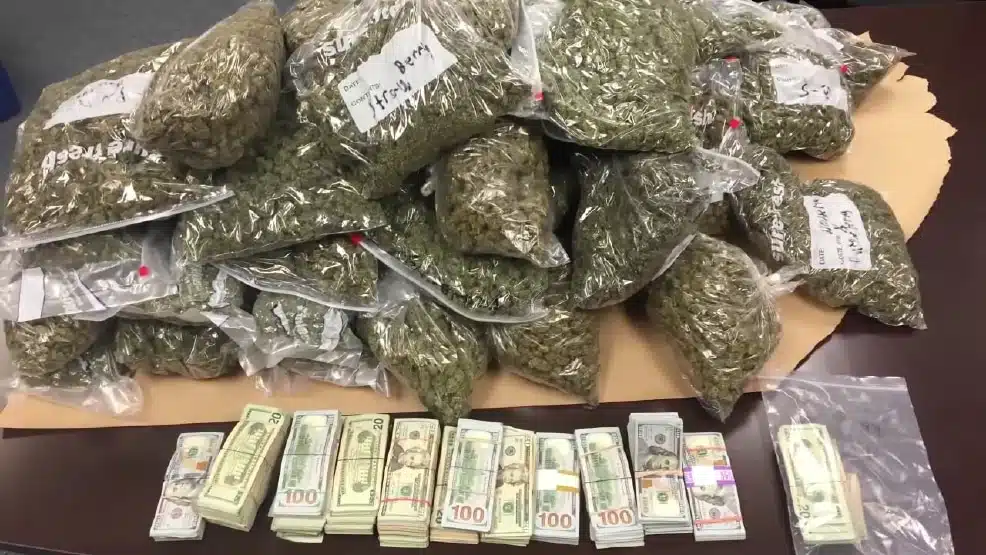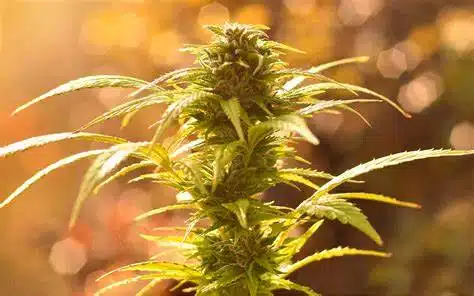Why Weed Was Illegal In The First Place
Welcome to another informative blog post about cannabis! In this article, we will explore the intriguing history of why weed was illegal in the first place. Cannabis, also known as marijuana, has a long and complex past that has shaped its legal status over the years. Join us as we delve into the reasons behind the prohibition of this versatile plant and uncover the factors that led to its illegal status.
The Racial and Cultural Factors
One of the key factors that contributed to the initial status of weed being illegal was racial and cultural prejudice. During the early 20th century, there was a growing fear and xenophobia towards Mexican immigrants in the United States. Cannabis was associated with Mexican culture, and this association fueled the negative perception of the plant. Racist propaganda and stereotypes were used to demonize marijuana, leading to its prohibition.
The Role of Harry Anslinger
Harry Anslinger, the first commissioner of the Federal Bureau of Narcotics, played a significant role in the illegal status of cannabis. Anslinger was a staunch advocate for prohibition and used his position of power to spread fear and misinformation about marijuana. He propagated the idea that cannabis was a dangerous drug that caused violence, insanity, and criminal behavior. Anslinger’s efforts ultimately led to the passage of the Marihuana Tax Act of 1937, which effectively criminalized the possession and sale of cannabis, making it illegal.
The Influence of Big Industries
Another factor that contributed to the prohibition of cannabis was the influence of big industries. In the early 20th century, industries such as timber, cotton, and pharmaceuticals saw cannabis as a threat to their profits. Hemp, a variety of cannabis, was a versatile crop that could be used for various purposes, including paper, textiles, and fuel. The timber and cotton industries, in particular, lobbied against cannabis due to the competition it posed to their products. Pharmaceutical companies also saw cannabis as a potential threat to their lucrative business, leading to their support for its prohibition.
The War on Drugs
The “War on Drugs” declared by President Richard Nixon in the 1970s further solidified the criminalization of cannabis. The government’s aggressive approach towards drug control led to stricter laws and harsher penalties for marijuana offenses. The focus shifted from viewing cannabis as a cultural or racial issue to considering it a national security and public health concern. This approach perpetuated the negative stigma surrounding marijuana and hindered any progress towards legalization.
The Medical Marijuana Movement
Despite the long-standing prohibition, the medical marijuana movement emerged in the late 20th century, advocating for the therapeutic benefits of cannabis. Patients suffering from various conditions, such as chronic pain, epilepsy, and cancer, found relief through the use of medical marijuana. This movement challenged the negative perception of cannabis and highlighted its potential as a legitimate medicine. Over time, the medical marijuana movement gained traction, leading to the legalization of medical cannabis in several states.
The Shift in Public Opinion
In recent years, there has been a significant shift in public opinion regarding cannabis. As more research emerges about its potential benefits and the failures of the war on drugs become apparent, people are reevaluating their stance on marijuana. The legalization of recreational cannabis in several states and countries reflects this changing attitude. Public opinion polls consistently show increasing support for the legalization and regulation of illegal cannabis.
The Economic Impact
The economic impact of cannabis legalization has also played a role in changing attitudes towards marijuana. As states and countries legalize cannabis, they have seen significant economic benefits. The cannabis industry has created jobs, generated tax revenue, and stimulated local economies. This economic impact has led to a reevaluation of the costs and benefits of cannabis prohibition.
The Social Justice Aspect
Another aspect that has influenced the push for cannabis legalization is the social justice component. The war on drugs disproportionately affected marginalized communities, leading to mass incarceration and perpetuating systemic inequalities. Advocates for cannabis legalization argue that ending prohibition is a step towards rectifying these injustices and promoting equity in the criminal justice system.
The Scientific Research
Scientific research has also played a crucial role in changing perceptions of cannabis. As more studies are conducted, the potential medical benefits of cannabis are being recognized. Research has shown that cannabis can be effective in treating various conditions, such as chronic pain, epilepsy, multiple sclerosis, and nausea associated with chemotherapy. This growing body of evidence has contributed to the acceptance of cannabis as a legitimate medicine.
The Global Trend
The global trend towards cannabis legalization has also influenced the perception of marijuana. Countries such as Canada, Uruguay, and several states in the United States have legalized recreational cannabis, setting an example for others to follow. This global shift has challenged the notion that cannabis is a dangerous drug and has opened up opportunities for further research and exploration of its potential benefits.
Conclusion
The illegal status of cannabis was influenced by a combination of racial prejudice, cultural biases, political agendas, and economic interests. Understanding the historical context behind the prohibition of marijuana helps us comprehend the challenges faced by the cannabis industry today. As public opinion continues to evolve, it is crucial to critically examine the reasons behind the initial illegal status of weed and work towards a more informed and progressive approach to cannabis policy.
Remember, if you’re looking for a reliable online dispensary to explore the world of cannabis, be sure to check out West Coast Releaf Online Dispensary. They offer a wide range of products, including concentrates, edibles, vapes, tinctures, and more. With their convenient delivery and mail order services, you can easily access high-quality cannabis products from the comfort of your own home. Don’t miss out on the opportunity to experience the benefits of cannabis with West Coast Releaf Online Dispensary! If you are interested in buying weed online and THC products, check out West Coast Releaf online weed dispensary and shop for your weed online and cannabis products at westcoastreleaf.co!













